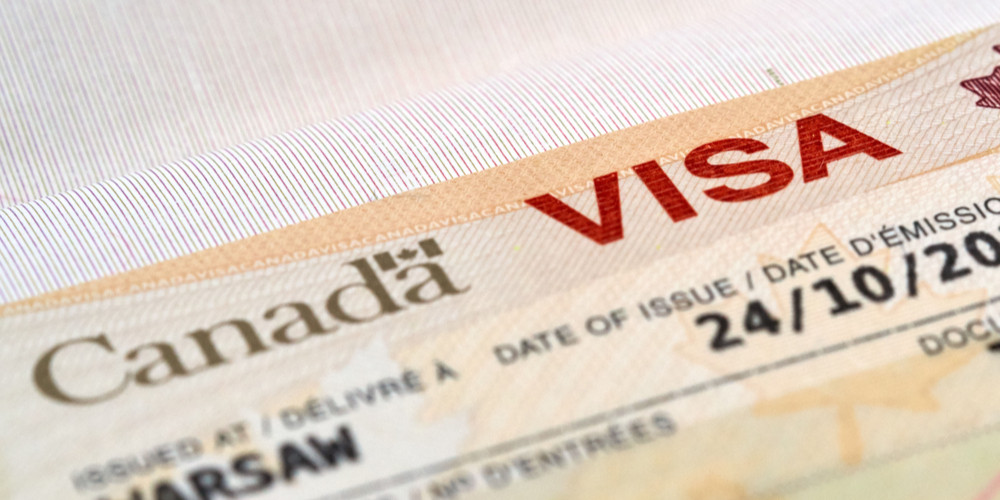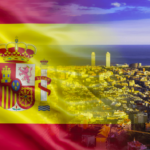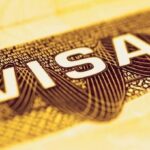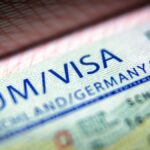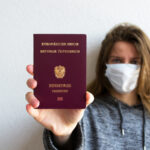Canada, a highly developed country situated just above the United States, has seen a steady rise in the number of people seeking to visit or immigrate in recent years. If you’re among those intrigued by the allure of Canada, you might be wondering about the intricacies of the Canadian visa application process. In this detailed guide, we will explore various visa types, eligibility criteria, and provide you with the essential steps for a successful application.
What is a Canada Visa?
A Canada visa is a stamp affixed to your passport that grants you permission to enter and stay in the country temporarily or permanently. Obtaining a Canada visa implies that the Canadian Consulate or Embassy in your home country has reviewed your eligibility based on their requirements. However, your final entry into Canada depends on the evaluation conducted by the officers at the Canadian border and customs.
Upon encountering the Canadian Border Services Officer (BSO), providing honest and accurate responses to their queries will determine your entry. Any discrepancies may result in denial of entry, even if you possess a valid Canada visa.
Who Requires a Canadian Visa?
Visa requirements are contingent upon the existence of visa exemption or Electronic Travel Authorization (eTA) agreements between Canada and specific countries. Approximately 148 countries require a visa for various purposes, including tourism, work, or immigration.
If your nationality necessitates a visa for your intended purpose in Canada, you must initiate the application process. While the method of application varies based on the specific visa type, there are general steps that applicants must adhere to.
Types of Canada Visas
Before embarking on the application process, it’s imperative to identify the most suitable visa category aligned with your purpose for visiting Canada. Here are the main types of Canada visas:
Temporary Canada Visas
Temporary visas grant individuals the opportunity to stay in Canada for a predetermined period, typically determined by the Canadian Consulate or Border Services Officers (BSO). These visas can be single entry or multiple entry.
Single entry visas allow a one-time visit for up to 6 months, after which you must return to your home country. Multiple entry visas permit multiple visits until the visa expires. The temporary visa categories encompass:
- Canada Tourist Visa: Designed for tourism purposes.
- Canada Super Visa: Extended visitation for parents or grandparents of Canadian citizens or Permanent Residents.
- Diplomatic and Official Visa: Granting entry for foreign officials and diplomats on official duties.
- Courtesy Visa: For individuals of significance who don’t qualify for a Diplomatic and Official Visa.
- Canada Business Visa: Facilitating entry for individuals or groups traveling for business purposes.
- Visa to Give Birth in Canada: Allows pregnant individuals meeting specific criteria to give birth in Canada.
- Intending Organ Donors Visa: For those donating organs to a Canadian citizen or Permanent Resident.
- Canada Facilitation Visa: Issued to Canadians with dual nationality who lack a Canadian passport.
- Canada Student Visa: Designed for students with admissions to Canadian universities.
- Canada Temporary Work Visa: For individuals with job offers in Canada, allowing a stay of up to 6 months.
- Temporary Residence Permit: Issued for specific purposes when inadmissible for a Temporary Resident Visa (TRV).
- Working Holiday Visa: Available for young people from 30 countries, offering work and travel opportunities.
Permanent Canada Visas
Immigrant visas, known as permanent Canada visas, permit individuals to settle in the country indefinitely. This category includes:
- Immigrant Investor Program: Requires significant investments in the Canadian economy.
- Startup Visa Program: Geared towards those contributing to the economy by owning and managing a Canadian business.
- Self-employed Persons Visa: For individuals skilled in business, athletics, culture, or farming.
- Quebec-Selected Skilled Worker Program (QSWP): Suitable for those with specific skills needed in Quebec who are fluent in French.
- Family-Sponsorship Program: Allows spouses and dependent children of Canadian citizens or Permanent Residents to immigrate.
- Live-in Caregiver Program (LCP): Grants visas to caregivers providing support for elderly, disabled individuals, or children within a private Canadian residence.
Express Entry Visas
The Canada Express Entry Program is a digital immigration initiative allowing applicants to qualify based on their specific skills. Subcategories include:
- Federal Skilled Trades Program (FSTP): Targeting skilled tradespeople in various occupations.
- Federal Skilled Worker Program (FSWP): Aimed at professionals with occupations in demand.
- Provincial Nomination Programs (PNP): Aligned with regional demands for semi or low-skilled workers.
- Canadian Experience Class: For temporary student or worker visa holders seeking permanent residency.
How to Apply for Canada Visa? – Canada Visa Application Process
The application process for a Canada visa hinges on the specific visa type you require. Here’s a comprehensive overview of the application process:
1. Determine Your Eligibility: The Canadian government provides an accessible online questionnaire to assess eligibility. You’ll be asked a series of questions based on your visa type, which will determine your suitability and provide detailed instructions.
2. Navigate the Canadian Government Website: Visit the official website and navigate to the Immigration tab. Select the category that aligns with your intended visa type. Then, click on “Find out if you can apply” or “Find out if you are eligible.”
3. Fill Out the Questionnaire: The questionnaire will cover personal information, your reasons for visiting Canada, and your travel history. Upon completion, the system will present you with your eligibility results.
4. Receive Your Results: Your results will fall into one of three categories: eligibility for your selected visa, eligibility for a different visa, or ineligibility. You will receive a set of documents with visa details and instructions, including a reference code. Ensure you safeguard this code, as it is essential for your application.
5. Create an Online Account: Follow the provided instructions to create an online account. You can use your online banking login or create a Government of Canada login (GCKey). You’ll need these details to pay the visa fees.
6. Compile Required Documents: Once your account is set up, use your reference code to initiate your application. The system will provide a list of required documents, which must be submitted online.
7. Pay Visa Fees: After submitting the necessary documents, proceed to the payment page to settle the visa fees, which vary based on your visa type. The processing fee ranges from $20 to $50. The system will acknowledge your application once the fees are paid.
8. Wait for Visa Processing: The processing time depends on your visa type and can take two to four weeks or longer. Additional document requests or biometrics may extend the processing period.
9. Attend Biometrics and Interview (If Required): In some cases, you may be requested to provide biometrics and attend an interview. Biometrics appointments can be made at a Visa Application Center.
10. Receive Embassy Notifications: All communication regarding your visa will be posted on your account. Ensure you check your account regularly.
11. Submit Passport and Processing Fees: If your visa application is approved, you must submit your passport to the Canadian Embassy along with processing fees, typically ranging from $20 to $50. You’ll also need to provide a return envelope for the passport.
Upon Successful Canada Visa Application: Once you receive your visa, you are ready to travel to Canada. At the point of entry, immigration officials will inspect your passport and documents and may pose questions about your purpose for visiting. Entry into Canada is solely at the discretion of these officials, as a Canada visa does not guarantee entry.
Canada Visa Processing Time: The processing time for Canada visas is variable, usually ranging from two to four weeks. Processing commences upon receipt of a complete application, and any requested additional documents may cause delays.
Assisting Someone in Obtaining a Canada Visa: You can support a family member or friend living abroad in visiting Canada by composing a Letter of Invitation. This letter should include comprehensive information about both the inviter and the invitee.
However, it’s important to note that the Letter of Invitation does not guarantee the approval of a Canada visa. Visa applications are assessed independently.
Can I Extend My Stay in Canada?
If your Canada visitor visa is nearing expiration and you wish to prolong your stay, you must apply for a visa extension, referred to as a Canada Visitor Record, at least 30 days before your current visa expires. The Visitor Record can also serve to change a study or work permit to a visitor record, but it’s only applicable if you’re inside Canada. Leaving Canada would require a new visa.
Is Overstaying Allowed with a Canada Visa?
Overstaying a Canada visa can have consequences depending on the duration of the overstay. For periods of fewer than 90 days, you may restore your visitor status through a Visitor Record application. If you exceed 90 days of overstay, you are typically required to leave Canada and may encounter difficulties obtaining another Canada visa.
How Much is Canada Visa Fees?
The fees for Canada visas vary depending on the specific visa type. Applicants are also required to pay processing fees and biometrics fees. The standard Visitor Visa fee is $CAN100.
What If My Canada Visa Rejected?
If your Canada visa application is declined, you can reapply at any time, unless your rejection letter specifies otherwise. Reapplication is advisable if your circumstances have changed, or you have additional information that may enhance your chances of approval. However, there is no formal appeal process for a Canada tourist visa decision; appeals are only applicable for refugee and permanent residency applications, processed by the Immigration Appeal Division (IAD).
Refunds for Rejected Canada Visa Applications
Canada visa fees are generally non-refundable, even in cases of application rejection. Fees are primarily for processing services, not the issuance of the visa itself. However, some specific fees may be refundable under certain circumstances.
Can I Apply for a Canada Visa From Another Country?
In instances where there is no Canadian embassy or Visa Application Center in your country of residence, you may be required to travel to another country to apply for a Canada visa. It is essential to apply at the Canadian embassy or VAC responsible for your legal residence. If you possess a residence permit in a different country (Country B), you can apply for a Canada visa from that country. However, if you are merely visiting Country B and lack legal residency, you must apply at the Canadian embassy or Visa Application Center corresponding to your home country.
How to Submit Biometrics for Canada Visa Application?
For most visa applicants, submitting biometrics (fingerprints and photographs) is mandatory, irrespective of the visa type. The Canadian embassy will send instructions for biometrics payment when you submit your Canada visa application. Visa Application Centers worldwide are available for biometrics collection.
What and How Does a Canadian Visa look like? – Appearance of a Canadian Visa
A Canadian visa is a stamp affixed to your passport, featuring details like the place of issuance, date of issuance and expiration, number of entries allowed, document number, visa category, visa type, your last and first name, and passport number.
Canada Immigrant Visa

Canada Employment Visa

Canada Visitor Visa

What is the Maximum Age Limit to Work in Canada?
In most cases, there is no maximum age limit for Canadian work permits. However, there is an exception under the International Experience Canada (IEC) program, where applicants must typically be between the ages of 18 and 35 years (or up to 30 or 35, depending on the country-specific agreements). The IEC program is designed for young people from certain countries to work and travel in Canada.
What is the Maximum Age to Immigrate to Canada?
There is no specific age limit requirement for most Canadian immigration programs. However, in many categories of economic immigration, such as the Express Entry system, applicants between the ages of 25-35 typically receive the maximum points for age in the Comprehensive Ranking System (CRS). As an applicant’s age increases or decreases from that range, the CRS points awarded for age gradually decrease or increase, respectively. While there’s no maximum age, older applicants might find it more challenging to score as highly in the CRS.
Is IELTS Required for Canada?
IELTS (International English Language Testing System) is indeed accepted by Immigration, Refugees, and Citizenship Canada (IRCC) as evidence of English language proficiency. It’s a common requirement for various immigration programs, especially for Express Entry and Provincial Nominee Programs. Depending on the program and the level of study, you may need to take the IELTS exam to demonstrate your English language proficiency. It’s important to check the specific requirements of the program you are applying for, as different programs might have varying language proficiency requirements.
Conclusion
Navigating the Canadian visa application process requires careful consideration of your specific visa category, adherence to eligibility criteria, and meticulous attention to the application steps. While the journey may seem intricate, preparation and a methodical approach are key to a successful Canada visa application. Whether you’re planning a short visit, long-term stay, or permanent residency, understanding the nuances of the process will facilitate your aspirations of experiencing the beauty and opportunities that Canada has to offer.

